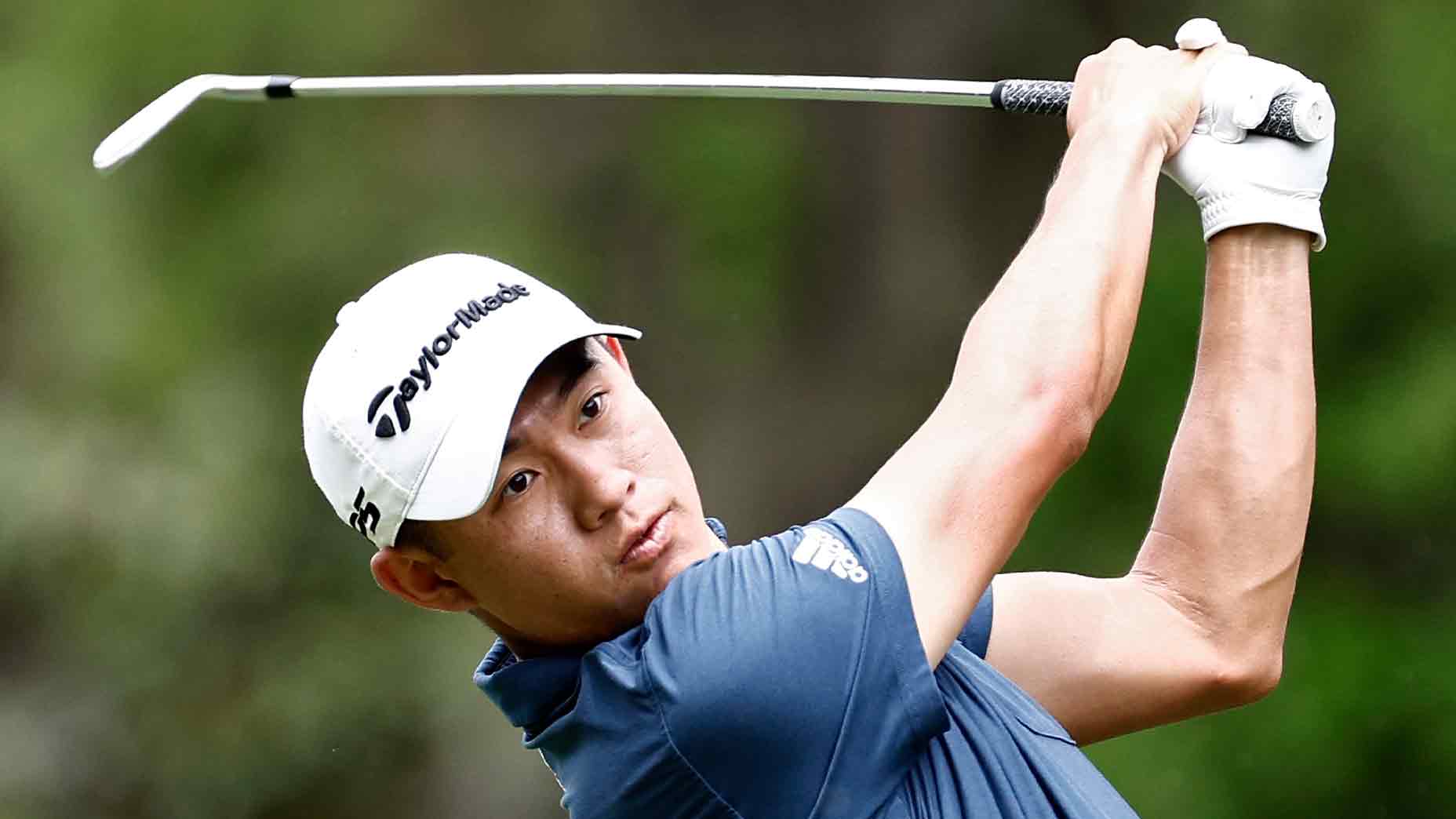The PGA Tour’s rivals are, if nothing else, extraordinarily well-funded.
Almost overnight, the Saudi-backed LIV Golf secured $250 million in prize money for its “International Series” — an offering that spans just eight worldwide events and, as of this writing, does not yet officially have a single professional commitment. For reference, the LIV Golf Invitational Series’ purse represents close to half of the PGA Tour’s season-long prize fund. The smallest of the events contested this summer will contain a winner’s check at-or-near that of the Players Championship, which in March awarded the largest purse in PGA Tour history.
For those willing to make the jump, it’s difficult to argue that LIV Golf offers life-changing money. So why is it that as of Tuesday’s deadline, only 15 of the world’s top 100 players had asked for a release to compete?
“I think there’s a lot of guys out there that aren’t just playing for the money,” Morikawa said. “If we were, then I might as well just start playing every week. You don’t see anyone playing every week if they’re just trying to make a quick penny.”
Of course, money is part of it. A substantial part of it. It’s why Phil Mickelson’s rights comments were so inflammatory, and why the PGA Tour took such umbrage at his suggestion that it is taking an unfair share from its constituents. Mickelson’s comments have inspired players like Morikawa to dig deeper about their share of the pie, but not many of them have agreed with his “obnoxious greed” summation.
“Sure, I’m guessing that the majors do make a lot of money and there’s never anything bad about making more money, but when you say something like that and you put us in the boat of the only other thing that could keep us here is the money, then that’s just not true,” Morikawa said. “Because if that were the case, then you would have had 100 out of 100 sign up for this other tour that’s happening, but you don’t, right? You have the 15, the unknown 15.”
What Morikawa’s saying is that money isn’t all of it. There’s more to being a professional athlete than net worth, which has turned into a rallying cry of sorts for the pro-PGA Tour crowd. Commissioner Jay Monahan presented his side’s defense well in only a single sentence at this Players Championship state of the union: “We’re focused on legacy, not leverage.“
But the Tour has both legacy and leverage. It has promised to impose a lifetime ban upon those who flee for a rival tour, and it would seem logical that the Tour will lean upon its major championship-hosting pals to do the same. That’s a matter that appears destined to wind up in court, which is about the last place Collin Morikawa envisions himself being when the Open Championship rolls into St. Andrews this summer.
“When it comes down to it, it’s just the love for the game,” Morikawa said. “I’m not complaining about where I’m at right now, and I love the position where I’m at, and I want to keep winning more. Obviously money is a great second part of it, but at the end of the day I didn’t finish The Open last year asking what I made.”
In fact, Morikawa admits, he still doesn’t know what he made from his Open Championship win last summer. That’s not what drives him, and evidently, he’s not alone in that opinion.
“I could not tell you what I made last year at all,” he said. “At the end of the day, I’m telling you about the memories of holding the Claret Jug and showing it to people and bringing it around town and showing it to family. Those are the memories you’re going to make, not hey, I made X amount of dollars; I’m good because of that.”
